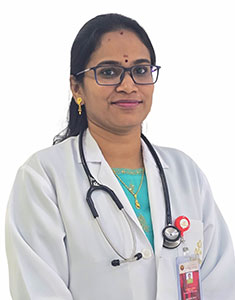
There are five main types of cancer that affect a woman’s reproductive organs: cervical, ovarian, uterine, vaginal, and vulvar. As a group, they are referred to as gynecologic cancer. (A sixth type of gynecologic cancer is the very rare fallopian tube cancer.)

What is cervical cancer?
Cancer is a disease in which cells in the body grow out of control. Cancer is always named for the part of the body where it starts, even if it spreads to other body parts later.
When cancer starts in the cervix, it is called cervical cancer. The cervix is the lower, narrow end of the uterus. The cervix connects the vagina (the birth canal) to the upper part of the uterus. The uterus (or womb) is where a baby grows when a woman is pregnant.
Cervical cancer is an easy gynecologic cancer to prevent with regular screening tests and follow-up. It is preventable with HPV Vaccine.
It also is highly curable when found and treated early.
Who gets cervical cancer?
All women are at risk for cervical cancer. It occurs most often in women over age 30. Each year,
approximately 12,000 women in the United States get cervical cancer. The human papillomavirus (HPV)
Is the main cause of cervical cancer? HPV is a common virus that is passed from one person to another during sex. Most sexually active people will have HPV at some point in their lives, but few women will get cervical cancer.
What are the symptoms?
Early on, cervical cancer may not cause signs and symptoms. Advanced cervical cancer may cause bleeding or discharge from the vagina that is not normal for you, such as bleeding after sex. If you have any of these signs, see your doctor. They may be caused by something other than cancer, but the only way to know is to see your doctor.
When should I get tested for Pre-cervical cancer?
The Pap test is one of the most reliable and effective cancer screening tests available. If your Pap test results are normal, your doctor may say that you will not need another Pap test for three years.
If you are 21 years old or older and you are sexually active, you may choose to have a Pap test, or an HPV test, or both tests together. If the results are normal, your chance of getting cervical cancer in the next few years is very low. Your doctor may then say that you can wait up to three years for your next screening.
The HPV test is also used to provide more information when women aged 21 years or older have unclear Pap test results.
For women aged 21-65, it is important to continue getting a Pap and/or HPV test as directed by your doctor—even if you think you are too old to have a child or are not having sex anymore.
However, your doctor may tell you that you do not need to have a Pap or HPV test if either of these is true for you:
- You are older than 65 and have had a normal Pap or HPV test for several years.
- You have had your cervix removed as part of a total hysterectomy for non-cancerous conditions, like fibroids.
What raises a woman’s chance of getting cervical cancer?
Almost all cervical cancers are caused by HPV. However, any woman who has ever had sex is at risk for HPV.
There are many types of HPV. Usually HPV will go away on its own, but if it does not, it may cause cervical cancer over time.
In addition to having HPV, these things also can increase your risk of cervical cancer:
- Having HIV (the virus that causes AIDS) or another condition that makes it hard for your body to fight off health problems.
- Using birth control pills for a long time (five or more years).
- Having given birth to three or more children.
How can I prevent cervical cancer?
- See your doctor regularly for a Pap and/or HPV test.
- Follow up with your doctor if your cervical cancer screening test results are not normal.
- Get the HPV vaccine. It protects against the types of HPV that most often cause cervical, vaginal, and vulvar cancers. It is recommended for preteens (both boys and girls) aged 11 to 12 years, but can be given as early as age 9 and until age 26. The vaccine is given in a series of either two or three shots, depending on age. It is important to note that even women who are vaccinated against HPV need to have regular Pap tests to screen for cervical cancer.
- Don’t smoke.
- Use condoms during sex.
What should I do if my doctor says I have cervical cancer?
If your doctor says that you have cervical cancer, ask to be referred to a gynecologic oncologist—a doctor who has been trained to treat cancers like this. This doctor will work with you to create a treatment plan.
Are there tests that can prevent cervical cancer or find it early?
There are two tests that can either help prevent cervical cancer or find it early:
- The Pap test (or Pap smear) looks for pre cancers, cell changes, on the cervix that can be treated, so that cervical cancer is prevented. The Pap test also can find cervical cancer early, when treatment is most effective.
The Pap test only screens for cervical cancer. It does not screen for any other gynecologic cancer. - The HPV test looks for HPV—the virus that can cause precancerous cell changes and cervical cancer.
Are you between the age of 21- 65 year let your Pap test, HPV Test and get HPV Vaccination.
Meet Our Expert Team of Obstetrics & Gynecology








